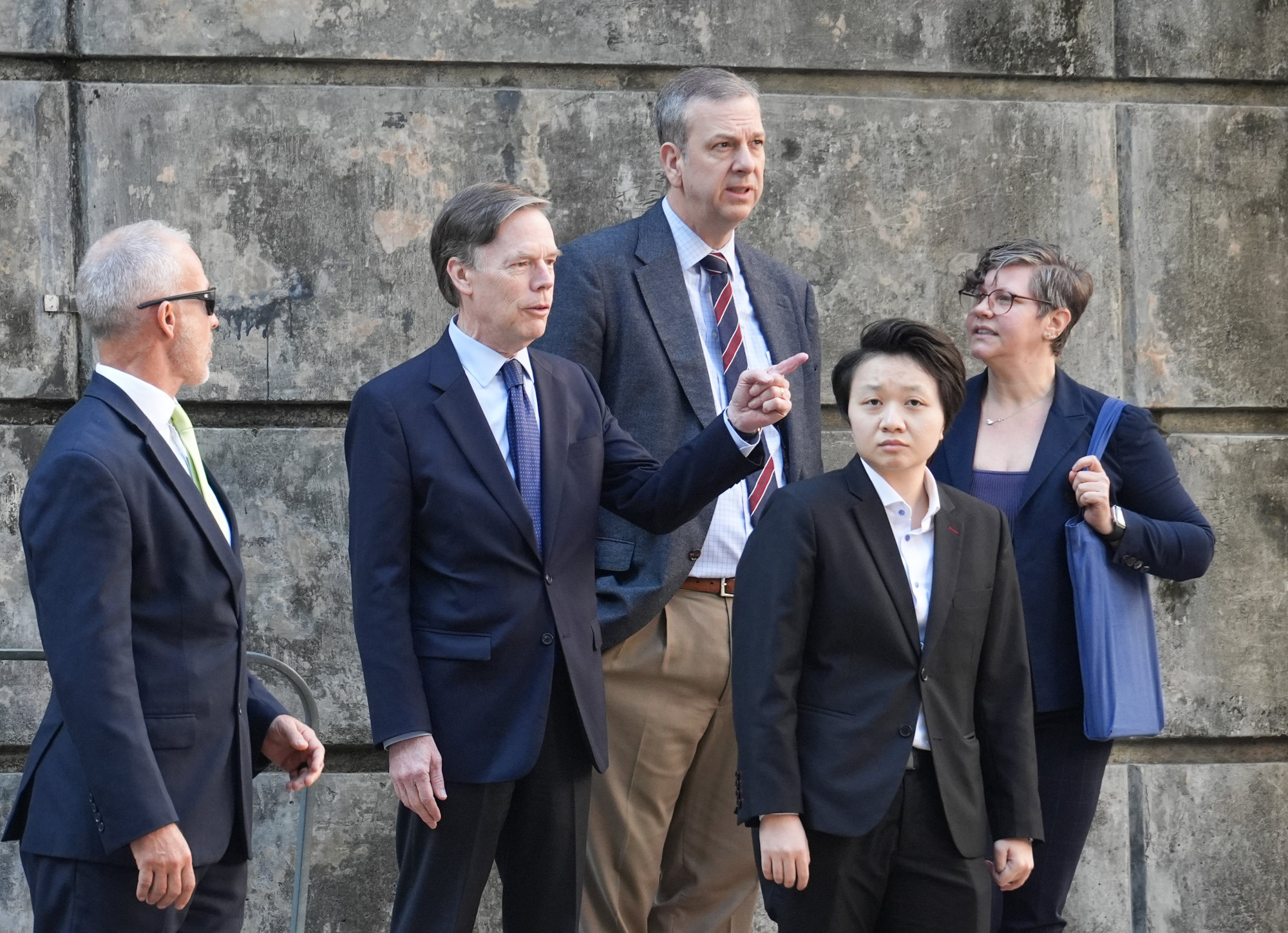
US ambassador to China makes rare 2-day visit to Hong Kong amid efforts by city’s lawmakers to fast-track Article 23 bill
- Nicholas Burns visits Foreign Correspondents’ Club for closed-door session, but refuses to comment on whether trip is related to city’s domestic national security bill
- Source says meetings part of efforts to gather views on Hong Kong’s future in the context of broader US-China relations
Burns did not take any questions on whether his trip was related to the coming domestic national security legislation, which the city is required to pass under Article 23 of the Basic Law, the city’s mini-constitution.

Sources told the Post that the top envoy was there to meet the board members of the press club for an off-the-record, closed-door session. The club has held similar exchanges with local and foreign politicians, as well as newsmakers, in such settings in the past.
Burns was taken on a one-hour tour of the M+ art museum in the West Kowloon Cultural District by museum director Suhanya Raffel on Tuesday afternoon, his final day in the city.
On the previous day, Burns met board members of the American Chamber of Commerce and visited the University of Chicago’s Hong Kong campus on Mount Davis, according to two sources.
A spokeswoman for the US consulate only confirmed Burns’ two-day visit, without sharing any details about the itinerary.
Hong Kong’s Article 23 law: ‘6-month wait for absconder status may be scrapped’
“US Consul General Gregory May is hosting US Ambassador to the PRC Nicholas Burns for meetings in Hong Kong [on Monday and Tuesday],” she said.
“These meetings mark the resumption of routine and long-standing internal policy and management coordination discussions.”
The ambassador’s trip takes place amid lengthy review sessions convened by a Legislative Council bills committee. The bill was gazetted last Friday.
The Post learned that the American Chamber of Commerce was notified of Burns’ visit in the last two weeks.
A source familiar with the matter said Article 23 was only one item among a range of issues over the role and future of Hong Kong on which Burns was collecting feedback from business and media representatives in the broader context of US-China relations. The top envoy did not offer his views on the legislation, sources said.
Lau Siu-kai, a consultant for Beijing’s semi-official think tank, the Chinese Association of Hong Kong and Macau Studies, said that while it was rare for a US ambassador to China to visit Hong Kong, there could have been previous visits which were not reported.
“As long as Burns does not say anything about Article 23 in public, I will take the consulate’s suggestion at face value that it is part of a routine practice,” he said.
The coming legislation, a domestic counterpart of the national security law imposed by Beijing in 2020, targets five new types of offences: treason; insurrection; theft of state secrets and espionage; sabotage endangering national security; and external interference.
The committee has vetted at least 126 out of 181, more than two-thirds, of the bill’s clauses since Friday.
Hong Kong authorities slam news outlets for ‘misleading’ Article 23 law remarks
Last month, Washington expressed concerns that the “broad and vague” definitions in the coming law could be used to stamp out dissent and its proposed long-arm jurisdiction might be exercised to “intimidate and restrict” Americans.
The strong stance, issued after the city wrapped up its one-month consultation on the bill, drew a fiery rebuttal from Beijing, which slammed the US for its “political manipulation and hypocritical double standards”.
Hong Kong has been caught in the crossfire of worsening US-China relations, especially after Beijing’s imposition of the national security law in response to the social unrest in 2019.
Washington responded in 2020 by slapping sanctions on 11 mainland Chinese and Hong Kong officials – including Chief Executive John Lee Ka-chiu, who was security minister at the time – for their role in “undermining the autonomy [and] restricting the freedom of expression or assembly of Hong Kong citizens”.
Secretary for Security Chris Tang, who was serving as police commissioner at the time, was also among those sanctioned by the US.
Hong Kong lawmakers discuss longer detention time for suspects in Article 23 bill
Brent Neiman became the highest-ranking representative from the US Treasury Department to visit the city in years when he made a three-day visit to Hong Kong last September.
Sources at the time said that Neiman, the US treasury department’s assistant secretary for international finance, had met with the Hong Kong Monetary Authority and other finance officials, as well as American business leaders in the city.
In January, Burns said that while relations between Washington and Beijing had “notably stabilised” since President Xi Jinping’s meeting with his US counterpart Joe Biden in San Francisco last November, there would “always be a competitive relationship” between the two superpowers.


